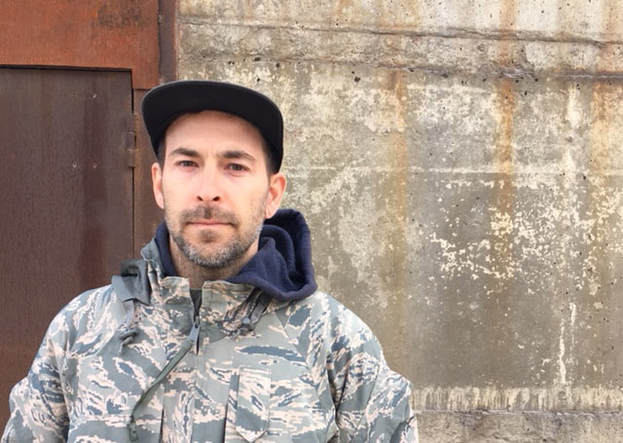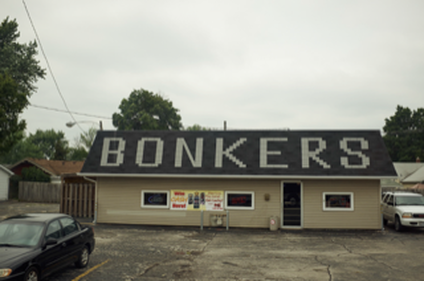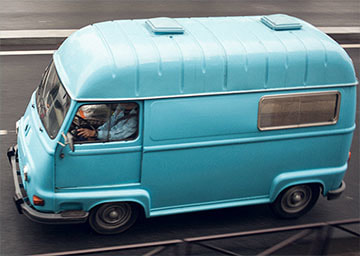|
Joe Leonard and I have been friends for almost 20 years. Originally meeting in Atlanta around skateboarding which lead to shared interests in music, coffee, music, and making the majority of the people around us very uncomfortable. He has worked with some of skateboarding's biggest talents and photographers in Atlanta as well as a handful of models and still lifes in New York City. One of my fondest memories of Joe will always be a prolonged conversation with a stuttering police officer at the Tennessee Aquarium in Chattanooga attempting to see how many different ways one could say Chattanooga. Yes, we were young asses... it's still funny.  SSL: How would you describe your relationship with photography? JL: The act of taking pictures and myself are life partners. We share the world together. We are constantly searching and observing everything we can as we move about. The camera gives me something to hide behind, or a reason to talk to strangers. I am lucky to have found something that can pause a particular moment in time and save it for later. Otherwise these moments would just be a passing glance that I’d never revisit. Photography allows me and others to take a look at the world's tiny details. You just need to stop the momentum and take a longer look to really see the beautifully mundane details. SSL: Would you say its a healthy codependency, or maybe your sidepiece? JL: UGH... I don't know! SSL: What makes a moment worth revisiting? JL: I think time makes a moment worth revisiting. I think it’s nice to look back and see what you might have missed in the moment, or what is no longer here. Also it could be just simply looking at a snap shot and remembering a good time or a special vacation or an event in your life. I like the idea of pictures as documentation. A little kick start to trigger your brain to remember. SSL: You've had opportunities to photograph professional skateboarders, musicians, and models. Are you allowed the time with each subject to capture these details, or are these situations simply focus and shoot? JL: I don’t think time has to be a factor, sometimes you get a great picture in 30 seconds. What I want to do when I shoot anyone is find a genuine moment. Something in between a thought or something “normal”. Everyone already knows “this person” does “this thing”. I don’t care to showcase that. I want too see something else, anything else, real life. With that being said, if you are paying me money for a particular image, then it’s not really about what I want and I’m happy to fulfill a need. SSL: What are some of the most memorable moments you've had the opportunity to capture? JL: When I look back, I feel that I was lucky to have captured any of the moments that I have. It's like I've said before, the span of time, and the fact that you are so far removed from the past makes these pictures special. At the time they are taken, you are living that situation, but when you are seeing a picture in retrospect you can really appreciate what you've captured and enjoy the memory, or just study the changes that life has made. SSL: What is the most impressive moment you wish you were able to photograph? JL: There are characters that I see walking down the streets almost every time I don’t have a camera or can’t get to mine ready quick enough. I don’t know if those are most impressive moments, but I do wish I could photograph these amazing humans.I hate missing out on taking any pictures. I think it all comes from my age, and the feeling of losing my youth. I want to be able to show my daughter and the future generations what the world was like in my time. SSL: Do you think the accessibility of cameras have changed people's lives? JL: What I would like to say to all young photographers is not to get too caught up in trends. Ten years from now your "cool" picture is going to be irrelevant. Keep it simple, let the work speak not the trend. As a young photographer I got caught up in the fisheye craze of the 90's. I feel like I blew an opportunity to document my life and the lives of my friends during that time from a normal perspective. All I see now are distorted images of a really great time that I shared with some really great people. I really missed out on a great body of work! I'm going to talk about camera phone because I feel that having access to cameras is not as impactful as the phone. The camera phone has played a huge role in changing photography over the past 10 years. It's become common place to have a phone with you at all times, thus having access to a camera any time you want to snap a picture. Also Instagram and other social media sites now give you a platform to share your work with the world. I have film from 20 years ago that no one has ever seen, there just wasn't a way to get it out. Now you upload your picture and get instant feed back. You can get a real feel for what people like and dislike. You can see and correct your mistakes instantly. Today you can be a great, even a commercially successful photographer and never touch a "real" camera. Another thing about camera phones is that they now can speak for people who can't speak for them selves. It gives people the ability to bring attention to things that need to be seen and heard. We can't hide from it, it's part of everyday life, so you better watch what you do because there's someone right there ready to catch it on camera. SSL: What lead you to capture the image of van used for your skateboard graphic?
JL: The Image of the van, just happened. I usually have a camera everywhere I go, I took that picture on a work trip to Paris. It's just a picture I shot while walking around looking at everything. It was a passing moment that I caught and now get to look at when ever I want. With so many people having access to cameras, and to some degree surveillance devices, where to you see the future of photography going? JL: Everyone has a camera, that's for sure. I don't think that that's a bad thing. I do feel that a lot of it is disposable in a way. I have 1000's of pictures on my phone alone. That's 1000's of pictures that are most likely just going to go away, with my next phone upgrade, or when my phone dies. People will always take pictures no matter what the format is. I don't have an answer about the future of photography. I know that I'll be taking pictures for the rest of my life, it's just part of me and what I do. It's part of my daily routine. Pushing that button gives me an outlet, I just love to push it and hear the click! SSL: Is there anyone you would like to thank for anything? JL: I want to thank everyone for everything they do that make life what it is. I love you all. Joe Leonard currently has a photograph book for sale and was recently featured as a Slapstik artist for the deck series. You can follow Joe on Instagram at https://www.instagram.com/joeleonard/
3 Comments
6/8/2018 06:36:08 pm
I don't think I will ever learn to ride a skateboard in this lifetime. It's something I wasn't exposed to as a kid. All my life all I have been taught to was to stay home and do all the housework because I am a girl and it's a woman's job to clean up after men. It made me rebellious. I thought I am smarter than some boys I know, I can make more money than them so they should be the one cleaning up after me because I have got more important things to do for the humankind.
Reply
6/9/2018 06:10:03 am
Mundane would have to be an understatement. Whatever details that they may have poured in here must have had a lot of heart. I can easily tell by the way they look at it in high regard even if it's relatively unknown to most people. They say it's not appropriate to ask how anyone could have come up with such or what maybe the reasons behind every detail. It's for us to know and whatever we felt when we witness it ourselves maybe the most true.
Reply
Leave a Reply. |


 RSS Feed
RSS Feed